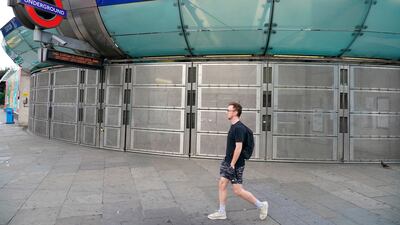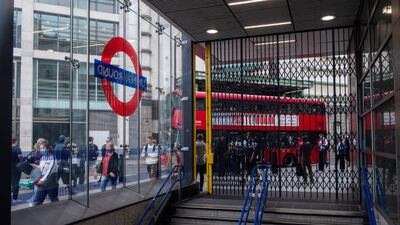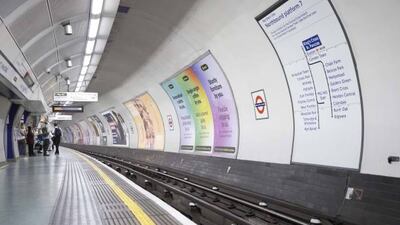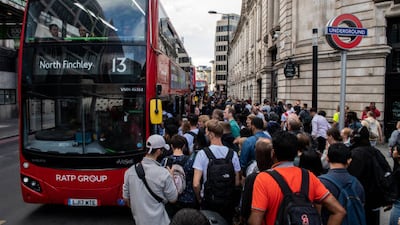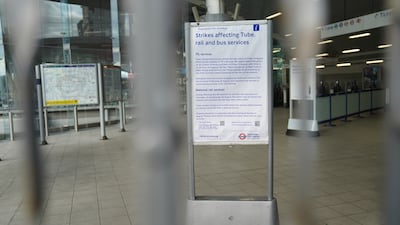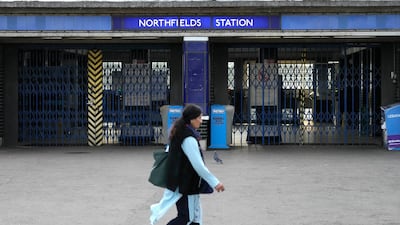A strike by London Underground workers has brought large parts of the Tube to a standstill.
Transport for London (TfL) has advised travellers to avoid attempting to use the Tube as the strike paralyses the service.
Transport Secretary Grant Shapps blamed union leaders for the continuing dispute and said the ministry could impose a solution if there was no agreement.
Buses were crammed with passengers and roads were also jammed as some travellers turned to their cars. At 9am, congestion levels were at 40 per cent, compared with 26 per cent last week.
Leaders at the Rail, Maritime and Transport (RMT) union blame the government and managers for the failure to strike a deal on pay and pensions, at a time when the country is enduring rampant inflation.
It is the second of three consecutive RMT strike days. The other two days are a separate dispute with Network Rail, the company that maintains the railways and controls rail signals for England, Scotland and Wales.
Most Tube lines are suspended with very limited operation where there was a service.
“We have done everything we can to avoid this strike going ahead today,” said Nick Dent, TfL’s director of customer operations.
“Unfortunately, the disruption is going to be pretty significant to London today. We are advising customers not to travel on the Tube at all.”
Mr Shapps accused the union of not conveying updated offers from management to its members.
“The deal that is on the table actually means largely no compulsory redundancies at all,” he said.
“If [the unions] are not prepared to put that deal to your membership, we will never know whether members would accept it.
“What I do know, and I can say for sure, is if we can’t get this settled in the way that we are proposing, which is ‘please put the deal to your membership’, then we will have to move to what is called a Section 188; it is a process of actually requiring these changes to go into place, so it becomes mandated.
“That is the direction that this is moving in now.”
Mr Shapps said that outdated work practices needed to be updated.
“If we can’t get those modernisations in place, we will have to impose those modernisations, but we would much rather do it through these offers actually being put to their members,” he said.
The union is pinning the blame for the strikes on funding cuts and warned more, wider action may be next.
“The issues that are involved in London Underground may get more serious and right across TfL, because they haven’t got any funding from the government, it’s going to be difficult,” RMT general secretary Mick Lynch said.
“The government has cut £4 billion off the railway, the mainline railways lost £2bn, and TfL lost £2bn. So, that is going to affect every worker, but it will also affect the services that Londoners can expect going forward.”
London mayor Sadiq Khan said the government was provoking the industrial action.
“The way the government is behaving, it is almost like they are deliberately provoking strikes across the country, not just in the transport sector but in other sectors, as a precursor for legislation to curtail the rights of trade unions to go on strike,” he said.
“Today it is ordinary Londoners, commuters and businesses who are caught in the crossfire — the government and Grant Shapps aren’t affected at all.”
There is also disruption to London’s bus service on Friday and Saturday due to a separate strike by drivers, who are members of Unite, over a pay dispute.
Sixty-three bus routes are being affected, according to TfL.
Mainline train services started later than normal on Friday due to the knock-on effect of Thursday’s RMT strike at Network Rail and train operators across the country.
Only 70 per cent of services will run across Friday as a whole.
A further walkout on Saturday will reduce service levels to 20 per cent.
